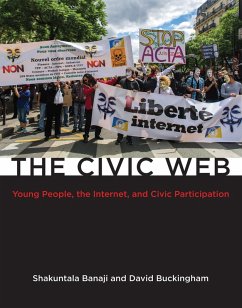There has been widespread concern in contemporary Western societies about declining engagement in civic life; people are less inclined to vote, to join political parties, to campaign for social causes, or to trust political processes. Young people in particular are frequently described as alienated or apathetic. Some have looked optimistically to new media—and particularly the Internet—as a means of revitalizing civic life and democracy. Governments, political parties, charities, NGOs, activists, religious and ethnic groups, and grassroots organizations have created a range of youth-oriented websites that encourage widely divergent forms of civic engagement and use varying degrees of interactivity. But are young people really apathetic and lacking in motivation? Does the Internet have the power to re-engage those disenchanted with politics and civic life?
Based on a major research project funded by the European Commission, this book attempts to understand the role of the Internet in promoting young people's participation. Examples are drawn from Hungary, the Netherlands, Slovenia, Spain, Sweden, Turkey, and the United Kingdom—countries offering contrasting political systems and cultural contexts. The book also addresses broader questions about the meaning of civic engagement, the nature of new forms of participation, and their implications for the future of civic life.
Dieser Download kann aus rechtlichen Gründen nur mit Rechnungsadresse in A, B, BG, CY, CZ, D, DK, EW, E, FIN, F, GR, HR, H, IRL, I, LT, L, LR, M, NL, PL, P, R, S, SLO, SK ausgeliefert werden.









